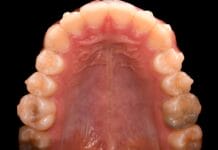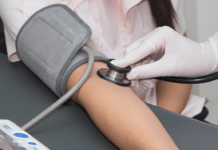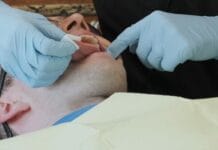Organ failure results from a variety of reasons, like genetic disorders, drug or alcohol abuse, or injury. In addition to treatments and medications, an organ transplant may increase the patient’s quality of life, but sometimes an immune response causes the patient’s body to reject the donor’s organ. Immunosuppressive medications reduce this immune response, but with unfortunate side effects, like increased susceptibility to infection, appetite changes, abnormal mouth lesions, and others. In a recent case series study from Germany, researchers looked at the oral health needs of kidney transplant patients.
Transplant Patients and Oral Health
Transplant patients have a unique set of healthcare needs, often requiring communication across various medical departments and specialties. In the unfortunate case of organ rejection caused by an immune response — antibody production or T-cell activation, or both — a transplant failure may occur. Some patients are more prone to organ rejection than others, as in the case of pre-sensitization, when a prior transplant, pregnancy, or blood transfusion increases the antibodies in their system. Acute organ rejection starts within the first few days or weeks, but it could lead to chronic organ rejection if it continues over time.
Immunosuppressive medications lessen the immune system’s response, helping the patient’s body accept the transplanted organ more easily. Unfortunately, they may also lead to unintended side effects, like infections, diabetes, or skin tumors. When considering a transplant patient’s oral health, severe decay, oral infections, or periodontitis may cause inflammation, triggering an immune response, which then exacerbates the cycle of organ rejection. Additionally, immunosuppressants often lead to abnormal mouth growths, causing further complications. For this reason, transplant patients must maintain healthy teeth and gingiva and maintain regular dental appointments, and seek dental care when necessary.
The Study
This retrospective case series study evaluated 19 renal failure patients from the Department of Nephrology and Hypertension of Erlangen’s University Hospital in Germany between January 2015 and March 2020. Patients had already received one transplant, but due to organ dysfunction, were on the waiting list for another. An algorithm highlighted some patients for an oral health evaluation, leading to their referral to the Department of Oral and Maxillofacial Surgery.
Each patient received a panoramic radiograph, underwent a dental evaluation using the standard decayed, missing, and filled teeth (DMFT) index, and completed a questionnaire documenting their medical history, list of immunosuppressant drugs, transplant information, and data on renal replacement treatments like dialysis. Based on these assessments, researchers placed patients into three risk categories:
- Category 1: Very high risk of complications (patients on immunosuppressants, who also received dialysis).
- Category 2: High risk of complications(patients who received dialysis).
- Category 3: Risk of complications (patients on immunosuppressants).
This study’s main goal was to assess the patient’s need for dental treatment and whether they required oral surgery. Additionally, researchers hoped to investigate the potential causes of transplant failure while also documenting immunosuppressant-related growths.
Researchers hypothesized that previous transplant patients with current organ dysfunction have an increased need for oral health treatment associated with inflammation.
Results
Researchers categorized patients into two treatment lists based on their evaluations, either “surgical treatment” or “conservative treatment.” Out of the 19 patients in this study, 13 (68.42%) needed oral treatments, seven of which (36.84%) were surgical.
Of the 14 patients who received immunosuppressants, five resulted in abnormal growths — one patient with gingival hyperplasia and four patients with skin neoplasms.
This study finds an association between oral inflammation and complications with transplant patients. However, this was a small study group, and more studies are needed.
Furthermore, kidney failure patients are vulnerable to health complications for various reasons, like uremia, or toxic buildup in the blood, due to their organ failure, as well as side effects from using immunosuppressive medications. This may lead to an increased need for oral health treatments and procedures. Cooperation and communication between the patient’s care team are recommended, and treatment may need to be done in a hospital setting.











